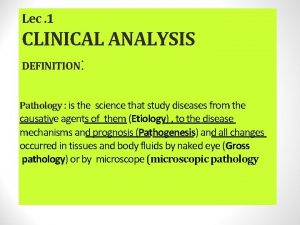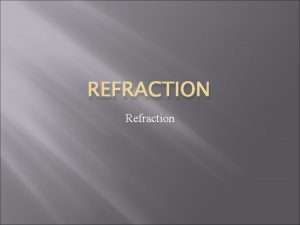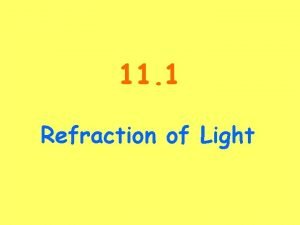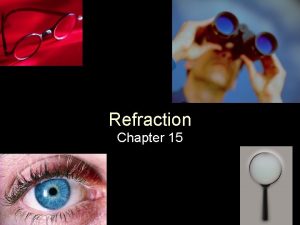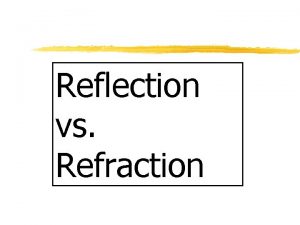Refraction 1 Clinical importance of refraction Definition of





- Slides: 5


Refraction 1

Clinical importance of refraction Definition of refraction: - In clinical ophthalmology, the term of refraction is employed to describe the process of measuring a patient’s refractive error and determining the optical correction needed to focus light rays from distance and near objects onto the retina and provide the patient with clear and comfortable vision. - Anomalies (abnormalities) of the optical state of the eye (refractive errors) are the commonest cause of defective vision (DV) thus any patient can not see clearly must undergo visual examination (refraction).

- While the near sighted (myopic) child unable to see the black board at school, or the presbyopic person finding it difficult to read small prints clearly make direct complaint of their disability, refractive errors may be discovered in other ways. Thus, evaluations of vision at schools and places of work or parents observations of visual insufficiency may also prompt an examination of the optical state of the eye. - DV may occur in persons having a previous visual correction using glasses or contact lenses, such a defect may be noticed by the patient or during a routine examination of the eye, thus in all who wear spectacles the complaint of blurred vision is an indication for a re-examination of the refraction.

- It is also important to remember that the refraction of the patient may be of great significant when visual failure is not due to refractive error. The interaction between the optical anomalies of the eye and eye diseases has both diagnostic and therapeutic implications like: a. A cataract patient may have a visual acuity (6/12) that corrected up to (6/6) with glasses, is not in need for cataract surgery. b. Also after operation of cataract extraction (postoperative) the patient also is in need for refraction. c. Eye examination showed a macular lesion, but refraction detected good visual acuity, this gives an impression that the lesion is not serious.


